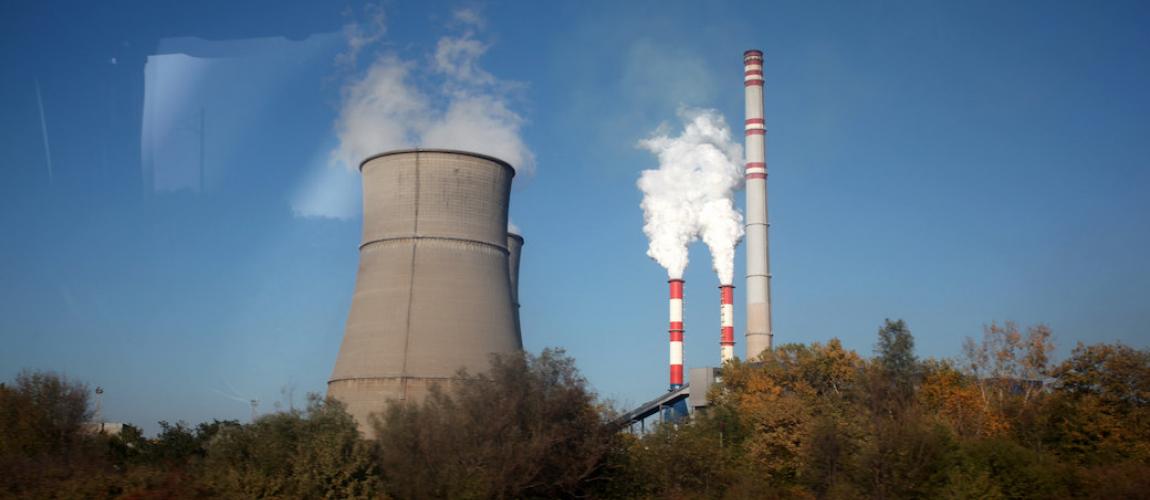Carbon Capture and Storage

Photo Credit: Image credit to Kevin Walsh via Flickr Creative Commons
With many countries depending on fossil fuels for energy generation, in particular in the developing world, carbon capture and storage (CCS) could support the worldwide efforts to ensure energy security and to tackle climate change and reduce greenhouse-gas (GHG) emissions. CCS is the process of capturing waste carbon dioxide CO2) from large point sources such as fossil fuel power plants, transporting it to a storage site and depositing it so that it will not enter the atmosphere. Leveraging finance from the private sector is attractive for the further deployment of CCS projects but so far high costs and risk associated with CCS projects tend to restrict this option.
Below are examples of policies, laws and regulations on carbon capture and storage, and further online resources and databases.
Reference: Carbon Capture & Storage Database - The International Energy Agency (IEA) International CCS Law and Regulation Database (CCS Database) catalogues how global CCS legal instruments address key regulatory issues associated with CO2 storage. The aim is to support ongoing efforts by governments to implement CCS permitting frameworks – legal or regulatory provisions that enable CCS, aim to ensure safe and effective capture, transportation and storage of CO2, and manage interaction with other uses of the subsurface – by consolidating and making more accessible information on existing instruments. Reference: Carbon Capture and Storage: Legal and Regulatory Review, International Energy Agency 2015 - The CCS Legal and Regulatory Review gathers contributions by national, regional, state and provincial governments, at all stages of CCS regulatory development. The Review provides an overview of CCS advances since the last edition and those expected to occur in the following 6 to 12 months and an overview of CCS legal and regulatory developments to date is also provided. Reference: Global CCS (Carbon Capture and Storage) Institute, Legal and Regulatory Indicator (the CCS-LRI), Global CCS (Carbon Capture and Storage) Institute, CCS 2018 – Offers a detailed examination and assessment of national legal and regulatory frameworks in 55 countries and examines a range of legal and regulatory factors likely to be critical for the regulation of the technology. Reference: Global Carbon Capture Storage Institute (CCS): Carbon Capture Legal Programme Legal Resources, The project analyses the implementation of Directive 2009/31/EC on the geological storage of carbon dioxide (‘CCS Directive’) in selected European jurisdictions. Through the establishment of an Emission Reduction Program (ERP), the World Bank aims to help developing countries to engage strategically with evolving global ERC markets, establish efforts to generate ERCs to sell into these global markets, and mobilize finance for such transactions. Check the sections below or click the link to find out more. Unlocking Blue Carbon Development: Investment Readiness Framework for Governments, The World Bank's practical framework to guide governments in catalyzing and scaling up public and private investment in Blue Carbon as part of their blue economy development. Global CCS Institute - The Global CCS Institute is an international member-led organization whose mission is to accelerate the deployment of carbon capture and storage (CCS) as an imperative technology in tackling climate change and providing energy security. International Energy Agency (Topics Page) -The IEA works to ensure reliable, affordable and clean energy for its 29 member countries and beyond. Its mission is guided by four main areas of focus: energy security, economic development, environmental awareness and engagement worldwide. Carbon Capture and Storage in Developing Countries: A Perspective on Barriers to Deployment, Natalia Kulichenko and Eleanor Ereira World Bank, June 2012 - This report aims to assist developing countries to better understand issues related to CCS within the economic and legal context of developing countries and countries in transition. It is the first effort of the World Bank Group to contribute to a deeper understanding of (a) the integration of power generation with CCS technologies, as well as their costs; (b) regulatory barriers to the deployment of CCS; and (c) global financing requirements for CCS and applicable project finance structures involving instruments of multilateral development institutions. Policies, Laws and Regulations: Carbon Capture and Storage (CCS)
Further Reading and Resources
Updated: July 11, 2024
Related Content
Climate-Smart PPPs
Climate-Smart PPP Legal and Regulatory Framework
Preparing, Procuring and Implementing Climate-Smart PPPs
Sector-Specific Content on Climate-Smart
Renewable Energy
Renewable Energy Toolkits
Biomass
Hydropower
Geothermal Energy
Wind Power Energy
Solar Power Energy
Climate-Smart PPPs: Further Reading and Resources
Additional Resources
Partner Resources

Renewable Energy Project Resource Centre (REPRC)
Wiki-based library of energy project resources. Includes sample terms of references, procurement documents, economic analyses and case studies (success factors and lessons learned).